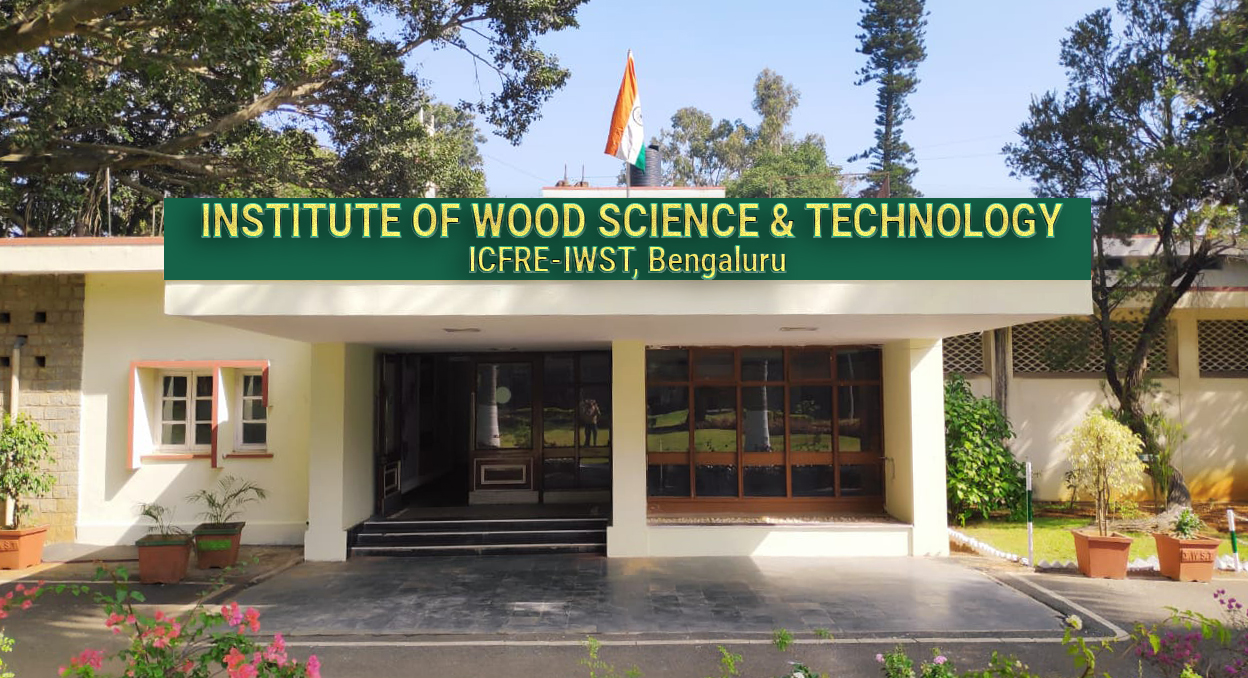Adhesives from Bio Material
PARTIAL SUBSTITUTION OF PHENOL IN PF RESIN WITH NATURALLY OCCURRING RENEWABLE MATERIALS
Among the synthetic resin adhesives – PF resins finds wide acceptance in the manufacture of plywood and other wood based panel products. This is mainly due to their highly durable bonds under exterior application.
The main raw materials for PF resins are phenol and formaldehyde both based on petroleum products. Although it is believed that adequate supplies of formaldehyde would be available in future but long term supply of phenol is considered to be less assured.
Worldwide shortage increase in price and doubts about future supplies of phenol for the wood based panel industries have added new impetus to replace phenol partially or fully by renewable bio materials processing phenolic nature for the manufacture of PF resin. Institute has developed resin formulations by substituting lignin, cardanol, black liquor, Tannin and para phenol sulphonic acid partially for phenol in PF resin manufacture.
a. DEVELOPMENT OF HIGHLY WATER SOLUBLE PHENOL CARDANOL FORMALDEHYDE RESIN (PCF)
Water soluble PCF resin by substituting phenol to the extent of 30-35 percent has been developed to bond BWR and BWP grade panels. A suitable deforming agent to reduce the foaming problems caused on high speed glue spreaders has also been worked out. This resins are also suitable for paper laminates.
Cost of PCF resin is cheaper by 25-30 percent compared to conventional PF resin.
b. Lignin – formaldehyde (LF) resin as a partial substitute for PF resin
Process parameters to obtain lignin were worked out. Methodology for the preparation of lignin formaldehyde has been established. Encouraging results have been obtained by replacing 50 percent of PF resin with lignin formaldehyde resin developed.
c. Lignosulphonate modified phenolic resins for bonding BWR and BWP grade plywood
Initial studies have been taken up to partially replace phenol in PF resin with commercially available lignosulphonates produces in one of the rayon mills in the country. Laboratory scale experiments have given encouraging results with ammonium lignosulphonates. Pilot scale trials posed lot of problems during resin manufacture and its application.
However, further studies were continued to partially replace phenol by lignin. In the present technology developed lignin with trade name proto bind 1075 supplied by M/s.Asian Lignin manufacturing Unit Ltd., Chandigarh was used.
The requisite characteristics of proto bind 1075 with the proportion of phenol, proto bind 1075, formaldehyde and caustic have been worked out. The resin formulation for manufacturing PLF resin and process parameters for making BWR and BWP grade panels have been optimized. Phenol can be replaced to the extent of 20-30% by proto bind 1075 in PLF resin. Few industries have adopted this technology for panel making.
d. Partial substitution of Phenol and formaldehyde in the phenolic resin by coconut shell flour (CSP)
Technology has been developed wherein about 40 percent of phenol and 30-34 percent of formalin could be replaced with CSF in CSF-PF resin suitable to bon BWR and BWP grade plywood cost of resultant resin is reduced by around 40% in comparison with PF resin.
The process for conversion of CSF into resin forming intermediates, copolymerization of phenol with CSF resin forming intermediates and formaldehyde to form resin have been worked out. Adhesive composition has been developed. Process parameters for plywood manufacture bonded with CSF-PF resin have been optimized.
e. Development of Phenol paraphenol sulphonic Acid formaldehyde resin
Laboratory scale investigations have been carried out to replace phenol by para phenol Sulphoric Acid partially in PF resin manufacture. The research finding indicate that about 30 percent of phenol can be replaced by paraphenol sulphoric acid in phenol formaldehyde resin which is suitable to bond BWR grade panels.
The resin formulations have been worked out. The process parameters for making BWR grade panels have been optimized. Needs further study for upgradation in pilot scale.



